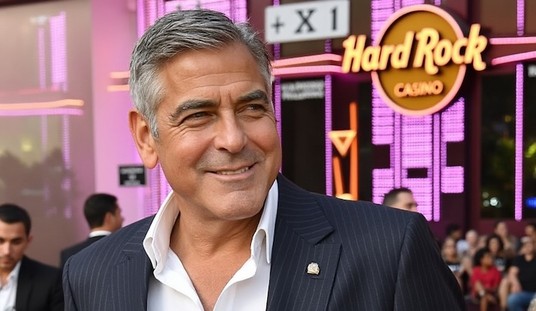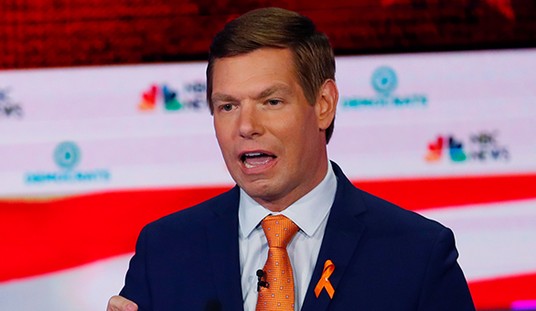On March 7, the Iraqi people go to the polls for their national election, a contest with so many factors it makes analysis of American elections look like elementary schoolwork. The election pits the camps of secularism, religion-guided democratic governance, and proponents of Iranian influence against one another. Blocs that are jockeying against each other will soon maneuver together to decide the next prime minister as the Iranian regime tries to manipulate and place itself in each side’s corner.
The election is preceded by a crisis that, in the words of Kenneth Pollack and Michael O’Hanlon, “is just the kind of seemingly small problem that could unravel the entire political fabric of Iraq.” Iraq’s Justice and Accountability Commission, under the influence of Ahmed Chalabi and his close friend, banned over 500 candidates from running in the elections for allegedly having ties to the outlawed Baath Party. Those on the list were not given the opportunity to defend themselves. Among those listed were the Sunni defense minister and Saleh al-Mutlaq, a prominent Sunni leader who is allied with the secular Shiite and former Prime Minister Iyad Allawi, a strong opponent of the political bloc with which Chalabi is aligned. General Ray Odierno has attributed this move to Iranian influence, saying that Chalabi has repeatedly met with the Iranian Revolutionary Guard’s top man in Iraq.
The ban caused an uproar even though many Iraqis supported it. The controversy resulted in a parliamentary body being set up to allow for appeals, but very few were granted. Al-Mutlaq remains barred. This resulted in his announcement that his party would boycott the elections. Reduced Sunni turnout would undermine the legitimacy of the election and the subsequently formed government. It would result in the disenfranchisement of Sunnis, a mound of sectarian tension, and possibly violence. It would also hurt Allawi’s bloc at the polls.
Luckily, al-Mutlaq has rescinded and is calling on Sunnis to participate. “We do not want to be a reason the Sunni people lose,” he said, aware that a boycott would only guarantee that the Sunnis would lose a spot at the table. Al-Mutlaq is not pro-American and has spoken in support of insurgents in the past, but this is a move we can all applaud. It will help Allawi’s bloc, which is the most secular and opposed to Iran of those running.
The latest poll shows some good news for those hoping to check Iran’s influence. Prime Minister Nouri al-Maliki’s State of Law coalition has a wide lead with 29.9% of the vote. Although al-Maliki does have ties to Iran, he has taken on Iranian-supported militias, such as when he authorized a bold offensive against the forces of Muqtada al-Sadr. He has also taken a very hard line on Syria. He has not been perfect and has struck deals with some of the Iranian-backed special groups, but he’s a far cry from some of his competitors.
In second place is Iyad Allawi’s al-Iraqiya bloc with 21.8%, a remarkable turnaround for the tough former prime minister. Allawi was extremely tough on Iran during his tenure and equally tough on Syria, unafraid to call them out for supporting the extremists wreaking havoc on his country. He is staunchly secular and has a history of close ties with the West. His bloc includes major Sunni figures, an important asset in helping to hold the country together.
In third place is the Iraqi National Alliance, the bloc most closely tied to Iran and most feared by the Sunnis and secularists. It includes the Islamic Supreme Council of Iraq (SIIC), formerly the Supreme Council for the Islamic Revolution in Iraq, and the party led by Muqtada al-Sadr, whose militia is responsible for the deaths of many Americans and Iraqis with Iranian munitions. Also included is Ahmed Chalabi’s party, a testament to how quickly Middle Eastern politics can change and Iran’s ability to co-opt even those who were secular and pro-American at one point if it suits their interests. According to a briefing given to General Odierno, the Iranians are providing the SIIC with $9 million per month and the Sadrists with $8 million per month in support ahead of the election.
There are some other things the poll tells us, although it must be remembered that there aren’t multiple polls for us to compare these results. The Kurdish Alliance only receives 10%, which casts some doubt on the survey because the Kurds account for 15-20% of the population. Their turnout is expected to be high, so they are likely being underestimated here. Various other blocs received lower percentages, such as the conservative Sunni National Accord Front, which only got 2.7%. This reflects the success Allawi’s bloc is having in getting Sunni votes, as secularism and protection from Iranian influence are major concerns for them. Al-Maliki is trying to win some of the Sunni and secular votes he lost with the ban by reinstating 20,000 army officers who served under Saddam Hussein.
No bloc is going to win a majority of the vote, and so a coalition will inevitably have to be formed. This is where things get more complicated. Al-Maliki says he wants to form a coalition with the Kurdish Alliance and al-Iraqiya after the election to form the next government, but Allawi is gunning for his spot as prime minister. Al-Maliki is also unpopular among the Kurds. He could instead ally with the Iraqi National Alliance, but their relationship has become significantly strained since his breaking away from their bloc and because they don’t necessarily need him.
There has been talk of the INA allying with al-Iraqiya, with one report (since denied by his party) that Allawi has won the support of Iran and Syria to become the next prime minister by forming such a coalition. The report cites “Iraqi government sources opposed to Allawi,” so this could be an attempt to undermine him, but it’s also possible that Iran is positioning itself as king-maker. If Allawi gets the post with Iran’s help, and he is politically dependent upon the INA’s support for his government’s survival, the Iranians may see this as a way of controlling him despite his fierce opposition to all of their goals. As one White House official said, “They’re putting chips on red and black and whatever is in between.”
It’s difficult to see how this will all play out, but next week’s results will tell us a lot about the growing secular trend of Iraq and Iran’s position in that country.









Join the conversation as a VIP Member